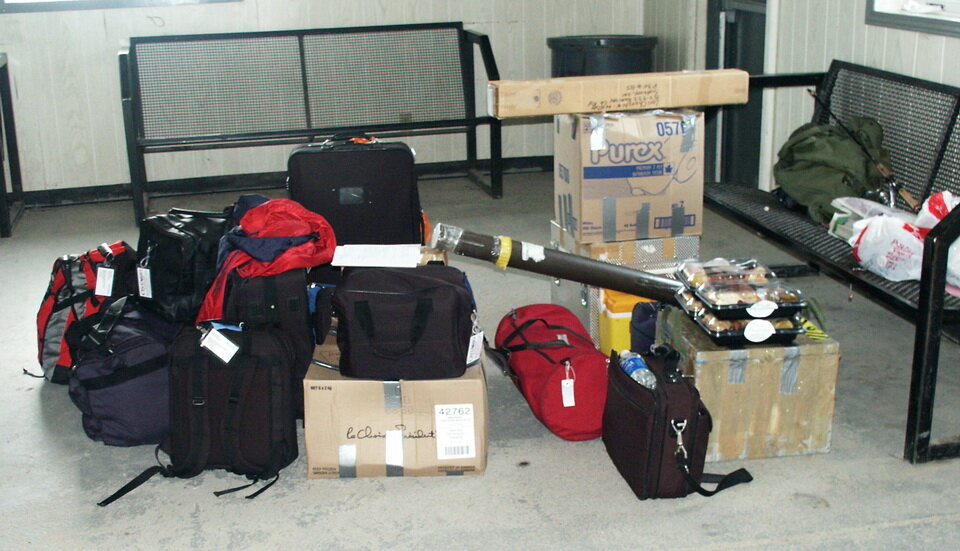Far North Rambles #19: Travel Planning
Far North Friday: Travel Planning: As someone who tended to procrastinate, I accept that travel planning is important. And, in the spirit of planning, I heard a new expression this week: “If you want to make God smile, tell him your plans”. I Googled the expression and it seems to be attributed to Woody Allen, although the original may also be derived from an old Yiddish proverb “We plan, God laughs". The message to me is regardless how meticulous our plans are, life happens, we are pulled left, and the plans go right. This was especially true for far north travel.
We always carefully planned for our far north trips: food, clothing, communications, camera, lodging, meeting agenda, supporting documents, geological materials and activities for the schools, airport pick up, emergency food, etc.. We always had a Plan B and C; however, we used to joke that once we got on the plane to leave Sudbury, we threw the plans out the door. Why? The world always seemed to change under our feet requiring a complete change of plans. Often it was weather. Sometimes it was a mechanical issue with one of the 3 aircraft needed to get to the destination. Sometimes it was an office urgency, or an issue in the destination community. Our joke about throwing away our plans may seem irreverent, but at one point, we determined that over the course of a year, there was not a single northern travel trip plan that remained intact. All had been affected by some sort of issue.
Travel is hard on those who require control and are inflexible! Fortunately, I was neither - at least when it came to travel.
Despite the challenges and changed plans, we almost never cancelled a community visit unless asked to do so by the community. Even if scheduled meetings were cancelled, we would visit the school to participate in, or deliver, a science activity, walk around the community to meet people on the street, or visit elders and other families. That is what our First Nation mentors invited us to do.
Two types of situations would cause us to pause to reassess the appropriateness of our visit: a) band elections; and b) death in the community. It was easy to plan around band elections, but a death in the community often, but not always, meant the visit was cancelled out of respect. If we were in transit, often it was possible to divert unannounced to a different community, given we were in the “neighbourhood”.
What did I learn about far north travel? I learned that meticulous planning was important, but the plans were never implemented in their entirety. What did I value more than planning? I valued greatly having so many options to engage with community people outside the boardroom. Who did I respect? I respected the First Nation community people for whom air travel to, and from, the remote communities was the only way in and out.
As I said, travel is hard on those who require control and who are inflexible.
This photo shows some of the gear needed for one of our early with Kasabonika Lake First Nation, back on July 29, 2002. Image by Andy Fyon, Kasabonika Lake airport, July 29, 2002.
Andy Fyon, Sept 19, 2020 (Facebook, May 29, 2020); Jan. 6/23

